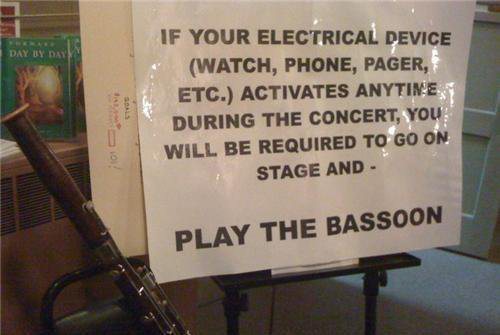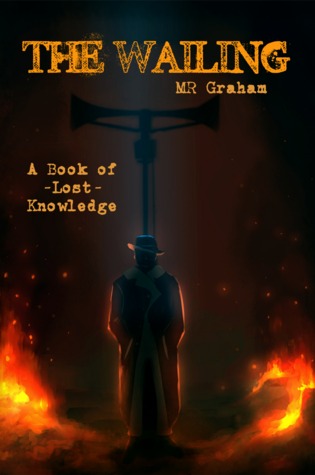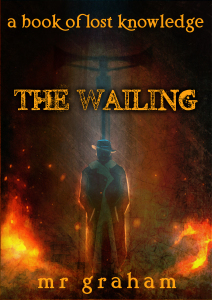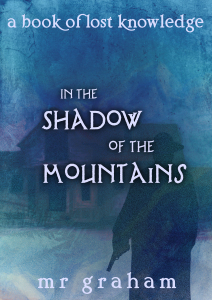M.R. Graham's Blog, page 22
July 18, 2013
Review – Titan Magic (Jodi Lamm)
 Titan Magic (Titan Magic #1)
Titan Magic (Titan Magic #1)
Jodi Lamm
ASIN: B005R9RJI0
eBook ISBN: 2940013244245
Paperback ISBN: 1466443693
393 Pages
From Goodreads: “Mute, heartless, and tormented by auditory hallucinations, Madeleine Lavoie never questions why her family has hidden her from the world. But the night her brother casts her out, she learns the mysterious voice she thought existed only in her mind is no delusion, and no matter how hard she tries, she can never disobey it.
Now Madeleine must find her own voice in a cacophony of powerful tyrants, monsters, and gods. If she fails, she will forfeit her life and the lives of everyone who loves her. But if she succeeds, she may finally gain the ability to love someone in return.”
The Premise:
Madeleine (Maddy) Lavoie is an invalid. Her memories go back only three years. She has very few emotions. She hears voices – including her own, though she has always been mute. She tries nightly to escape her family home and has to be physically restrained. She naturally assumes that she is insane. Her first inkling, though, that something is seriously wrong, comes when her brother suffers an extreme change in personality, ignores her for a year, and finally kicks her out of the house. Alone in nothing but a shift, corset, and greatcoat, she encounters a number of increasingly bizarre characters, almost all of whom seem to want to control her, most of whom treat her as something less than human. Her assessment of her own sanity isn’t helped much by the fact that one of them is a talking stag who claims she is his property. Maddy’s goal, then, is to discover whether she really is inhuman, avoid being controlled or killed, and figure out whether she is capable of or even wants to feel love as normal people do.
The Good:
Pretty much everything. I’ve reviewed Lamm before, and as before, her prose is stunning. She is a master of words. The plot she has crafted for Titan Magic is complex and unpredictable without falling into the trap of the outlandish that sometimes springs up when authors try too hard to defy convention.
I was very much intrigued by a protagonist who is both emotionless and mute, and I think Lamm dealt with those challenges admirably, especially given that the protagonist is female. It is very hard to find a female protagonist in fantasy (or any genre, really) who does not degenerate into hysterics at least once. Maddy is very practical and rational, except in one or two instances when she is supernaturally forced to endure someone else’s emotions.
(As a slightly spoilery aside, I did take issue with her placing a woman in a position of “natural” servitude, at least for the first few chapters. Once I realized where she was going with it, though, I rejoiced in the allegory. Maddy’s journey is very much womankind’s journey from object to personhood as she seeks her voice and her own agency.)
Her world-building was beautiful, rich and complex without beating the reader over the head with the place’s history. I do want to know more, though, about this political system and the old religion and the mythology. I hope for more tasty tidbits in the sequel.
The Bad:
Not much. As some other reviewers on Goodreads have noted, there was an awful lot going on, and an awful lot of plot threads to keep track of, which made me go back to check on things once or twice. Also, while I found Maddy very interesting, it was difficult for me to connect with her for about the first half of the book. (I think this might be partly because of the word heartless in the blurb, which lead me to expect more cruelty than apathy.)
There were exceptionally few typos in the book, but I did notice that the author consistently used “bore” for “bared” in reference to characters exposing their teeth. However, the version I read was the version the author emailed to me, and that might be corrected in the version available for sale.
The Interesting:
Or, things that stood out to me, but that I wasn’t sure whether to call good or bad.
*SPOILERS*
Lamm seemed to be setting up something like an ironic love triangle, in which neither potential love interest really worked well. Marcus is the brother, who later is revealed to be a sort of foster brother, who later is revealed to be a powerful supernatural creature without any real blood connection to the family. He can be pitied for his mood swings, which are caused by his being possessed, in a way, but toward the end, he turns up as bat-wig insane, even when not possessed. He seems to want Maddy to share in his world-domination, but is perfectly willing to use her up to get what he wants for himself. Jas, who turns out to be Maddy’s creator, is described in various relationship roles, including mother and god. He starts out very whiny and self-pitying, which is addressed by other characters with all the appropriate disdain and exasperation. His character does evolve admirably. However, while he can be excused for having complete control over his creation, he uses that control to coerce her into actions she does not want to take, even after it becomes obvious that she has acquired a real personality. Of course, he has been brainwashed into believing her incapable of being a person, and does eventually come to see her as real, but I found it incredibly awkward that she should be romantically interested in someone who treated her as an inanimate object for most of her life.
That’s both good and bad. I enjoyed the emotional contortions the characters had to go through, which is very much in agreement with real life, but I think I would have been happier if Maddy had ended up on her own for a little while.
*END SPOILERS*
In Conclusion:
I recommend it. Lamm has given me the opportunity to beta-read the sequel before she publishes it, and I’m chomping at the bit to get into it.
Also, I’m not sure whether Lamm intended this book as YA or not. Several Goodreads users have categorized it as Young Adult, but I read it as a much more mature character study. I enjoy YA, but the majority of the genre is nowhere near as sophisticated as Lamm’s work, and I think that readers who go into Titan Magic looking for fast plot and romance will be disappointed. Readers would be better off going in with the attitude that they will be given a thoughtful critique of humanity, couched in a fantasy framework.


June 28, 2013
Don’t tell stories!
I was at Chili’s the other night, having a couple of well-deserved drinks with a friend, when I observed something that wriggled its way into my brain and stuck there. It didn’t even really register with me at first. A family was having dinner a few tables away. There was a man, a woman, and a small boy, maybe seven years old. I didn’t notice them much at first, but after a while, a short argument went down about something I didn’t catch. Honestly, I wasn’t paying much attention. Someone raised a voice, someone contradicted the other. Then the boy offered his input. I don’t know what he said, but it was about ten seconds long, and at the end of it, the man reacted. It wasn’t violent, or anything. He just grabbed the kid’s arm, not hard enough to hurt him but hard enough to make me wince, and said very loudly “Don’t tell stories!”
I brushed it off and went back to my beer. The boy didn’t speak again, that I saw, for the rest of the meal.
But that episode grew and distilled in my mind until it had become a sort of gnawing horror.
Because you see, I knew what the man meant. The little boy had presented an untruth as truth, and had been rightly reprimanded for it. “Don’t tell stories” meant “Don’t tell lies.” That’s pretty good advice. That’s also not the advice that was given.
Children’s brains work differently from adult brains. They’re still constructing their understanding of the world. They’re still fitting that understanding to a language they haven’t fully mastered. At some point, they discover their ability to express things that don’t really exist. That’s not lying, exactly. It’s also not that false imagination adults sometimes invoke when a child says something fantastic and a nearby mature moron responds with “What an active imagination!” as though imagination is some sort of vaguely amusing mental illness that causes hallucinations so vivid, puny child brains can’t tell them from reality. Children know reality from fiction – their own fictions – at a very early age. They may believe in superheroes and wizards from television, but despite imagining that Barbie is going on a dinosaur-hunting safari, no child I’ve ever encountered has believed that Barbie is a real hunter, or that Rexie the dinosaur is really dead. Children do not get confused by the images they create inside their minds.
The problem is expression, and this has a very obvious cause. The book begins “Once upon a time, in a kingdom far away, there was a brave little tailor,” not “You know, I was imagining this story that’s not really real, and wouldn’t it be interesting – but bear in mind this isn’t real – if there was a kingdom – a fake kingdom – somewhere, and it was a long time ago – but not actual time, because that’s history – where there was this…”
No. When grown-ups pour their hearts and souls into a world born inside their own heads, they don’t preface it with “ALERT: THIS IS NOT REAL.” The assumption is that the reader/viewer is not a complete bonehead and can tell that certain things are fiction. This is the mode children learn by observation. They learn by observation that their stories are valuable, and that the best presentation is verisimilitude. The whole point of a story is pretending that it’s real – pretending, while knowing that it isn’t.
Adults underestimate children. I think I can state that as general fact. Most adults underestimate most children in most situations. Thus, when a child generates a story and presents it in the format adults use to present stories, the child is shot down for lying.
Don’t get me wrong; children do lie. They’re not the idiots a lot of people assume them to be, and they’re not the beacons of angelic purity, either. They’re as clever as adults, and can often be as conniving. The difference is that they don’t have the body of knowledge to work with. Children lie to get out of trouble, to get someone else into trouble, to get something they want, or just to create mayhem. They do lie.
That doesn’t change the fact that the all-knowing adults often can’t tell a story from a lie, and treating stories as lies is damaging. How many children have internalized that barked order – “Don’t tell stories!” – and have let all their stories die untold as a result, both the lies and the brilliant ideas? How many novelists have we lost to that horrible little piece of linguistic imprecision? How many seven-year-old screenwriters, comic artists, and playwrights have trudged through life full of stories they don’t dare tell?


June 27, 2013
Halfway through Summer courses. Bassoon.
After this evening, I’ll be done with the first round of summer courses. Unless the professor for my next course is really, really tough, I expect that one course will take up less of my time than two. So hopefully, with a wee bit more time, I’ll have a wee bit more time to blog.
In the mean time, here is a funny.



June 19, 2013
Brain Full of Farts and Jellybeans.
So, it’s been a while, and I swear I’m not dead. At least, mostly not dead. I’m taking summer courses, hoping to get this degree finished by December, so I suppose I might be slightly brain-dead. (You know, since summer courses have the distinction of being all the stuff you learn during a regular semester, but stuffed into a measly four weeks. I’m taking a total of three: two right now, and one more for the four weeks following.) The upshot is that I’m pretty sure I’m developing carpal tunnel and cranial tunnel and my-brain-is-filled-with-farts-and-jellybeans syndrome. All in all, not conducive to writing much.
I am trying. I really am trying. I do plan to have The Medium out this year, though maybe not in October. Maybe December. It depends on whether or not my head collapses between now and then. Having The Medium and The Siren both finished this year ain’t gonna happen, folks.
Between reading and writing for class, reading books to review (which I do swear I’m getting to), and writing furiously for… some reason which escapes me at the moment… blogging has fallen by the wayside. I’m sure I’ll find it again, eventually, but right now probably isn’t that time. Maybe once I’ve sketched up a review or two.


May 17, 2013
The Magic of Star Trek and the Danger of Despair
I went to go see Into Darkness today. I dragged the Minion along. She seemed to enjoy it, but not being the inveterate Trekkie she ought to be – a shortcoming for which I, as senior nerd, must take full responsibility – she missed some of the more subtle nods to the fans.
I’m going to be remedying that shortly, and not just because I’m one of those crazy fans who forces people to watch/read things they care nothing about. Star Trek is culturally significant. It’s something people should know about. I’ve recently been thinking a lot about the idea of cultural literacy, thanks to a series of research projects, and while I can’t agree with the high-culture definition that would require every student to read Grapes of Wrath and like it, I do strongly believe that the modern culture of Justin Bieber and Twilight, Kardashians and Honey Boo Boo is dangerously limited, shallow, restrictive.
That culture is cynical and jaded, yet somehow simultaneously arrogant. It denies the possibility that anything can be learned from the classics of the past, claiming that this is the greatest generation, and at the same time paints the future as a backdrop from Terminator, Mad Max, World War Z, The Hunger Games, Neuromancer, After Earth… Even a children’s movie like WALL-E depicts a miserable, hopeless, corrupt humanity. Cautionary tales are well and good, but there has to be an alternative vision, something to work toward as we avoid dystopia.
There are very, very few DOs amid the long list of DON’Ts.
Star Trek is one of those rare DOs.
Gene Roddenberry constructed a world viewers could want. He brought together a multiethnic, multinational crew in an era of lynchings and cold war. He put women on the bridge and later in the captain’s chair when most were still firmly stationed in front of the stove. In his world, the planet Earth has peace and equality, a stable economy, places to go when overpopulation reaches a tipping point, and effective medicine.
There is conflict, obviously. A good story must have conflict, some enemy to be defeated. But in Star Trek, the enemy is almost always external. The good guy is not the underdog, fighting off oppressive governments; the good guy is backed by one of the most powerful organizations in the galaxy. The bad guy is the Klingons, or the Romulans, or the Borg, or some rogue Starfleet officer who most emphatically does not represent humanity at large. The vast majority of characters we meet are the good guys, because goodness is the default. Often, conflict is simply a matter of misunderstanding, culture clash, failure to communicate. Alliances can be formed, friendships forged. Nonviolent solutions are preferable, and one is usually available. We are brought to confront our dark side, but instead of embracing it for the sake of survival, we must reject it to thrive.
It should not be difficult to see why this is important.
There is much talk about saving the world. Ending hunger, poverty, oppression. Using technology to improve the lives of the underprivileged. Fixing things, fixing people. But the dystopian fad is robbing us of our model. It has become fashionable to disregard or deny the impact fiction has on our perceptions, but constant exposure to any idea desensitizes and, with enough time, renders that idea the norm. In 1968, Plato’s Stepchildren was greeted with shock and disgust as the first interracial kiss on American television. Put the same scene on television now, and people might laugh at the campy effects, but no one will bat an eye at the kiss. We’ve seen enough of it that it’s normal. I would argue that’s a good thing.
But imagine an entire generation convinced that despair is the norm, that corruption and greed are the default, that goodness and courage are traits of the select few, and that if humanity even survives the next hundred years, it will be as a beaten, haggard remnant of some apocalyptic war.
I don’t know about everyone else out to save the world, but I want to be able to see what I’m working toward. I don’t want to be confronted at every turn with my own fictional failure. It hurts. It hurts me, and it hurts our culture to be bombarded with these messages of dystopia.
For me, Star Trek is more than entertainment; it is hope.


May 9, 2013
My professor is the archetype.
I’m sure you know the sort – engaging, enthusiastic, knowledgeable about virtually everything, full of stories and anecdotes, personable and yet professional. He appears in every movie that portrays education professionals in a positive light. Indiana Jones, John Keating, and (laugh at me if you must) Rupert Giles. Simultaneously intellectual and completely badass, a combination that is becoming ever scarcer both in fiction and in reality.
Doctor C is the Professor of cinema, that rare specimen who has actually done years of what he teaches and has the experience to criticise the conventions of his own bailiwick. He has the demeanour, the enthusiasm, the knowledge, the stories… All he lacks is the requisite tweed, which I suspect is solely the fault of the local climate.
I’ve taken statistics and action research under him this semester, both subjects in which I admittedly held limited interest until Doctor C exploded in a sforzando of linear regression analysis and research cycles, crushing any possibility of apathy. He has been extraordinary, a confluence of intellect and charisma and aggressive pedagogical passion. There need to be more like him in higher education.
I have no reason to suppose that Doctor C reads this blog, and no reason to suppose that anyone who does read it will ever come into contact with him, but if anyone does, I dare you to propose to him that ‘those who can’t do teach.’ Like a certain Doctor of my own invention, I suspect he’d take your head off. Politely.


May 5, 2013
Suddenly crafty
I have suddenly and unexpectedly become crafty again. It had been almost a year since I last did anything particularly creative – other than writing, of course. Now, all of a sudden, I’m making things again, and it feels great.
I picked up some double-point needles and am putting together a pair of half-finger gloves in this deliciously soft lavender-ice woolly lace yarn. I grieve, because the rest of my knittery is still in storage, or I wouldn’t have bought another set of double-points.
I also dug up the belt sander and the circular saw and my collection of cheapo woodworking tools, and I’m making stakes. Yep, stakes. The plan is to have a bunch of them to sell at Aggiecon next year, assuming I can grab myself a table. The plan is also to set up an Etsy store and sell vampire-slaying kits. I had several people ask about mine this last Aggiecon, and a few expressed interest in having kits of their own.
My full kit currently includes stakes, bottles of garlic powder sealed with wax, some little crosses and larger crosses (naturally), baggies of salt and rice, and a slayer’s manual I’ve been working on for some years. The manual will probably be up for sale eventually – I started work on it before I had really fleshed out my Lost Knowledge mythology, and I’d rather have one that fits in with that.
More ideas for niftier kits are welcome, of course!

They’re incomplete, at the moment. I’m going to carve up the shaft of the third one, sand them down a bit, stain them dark, and wrap the grips with wax thread.

The one on the left is my current favorite, but it resulted in a bruised palm and a pretty big chunk out of my thumb.

The photo unfortunately doesn’t capture the color of the yarn. That’s a real shame, because it’s truly beautiful!


April 22, 2013
Statistics class learns you things.
But clearly, not grammar.
So, because it made sense to do so, I ran a full-blown analysis of various social-media data plus book sales to see what was doing me good and what wasn’t.
I tracked my blog views, change in number of Twitter followers, Twitter interactions, and book sales for thirty days, crunched my numbers, and found out some weird stuff.
There was barely any correlation between any of my variables, but while I did have a tiny positive correlation between my Twitter data and my sales, there was a negative correlation between blog views and sales. So, the more people looked at my blog, the less likely I was to sell books that day.
I thought about reconsidering my content, posting more regularly, engaging a broader audience, tagging my posts more carefully, etc. Then I realized this isn’t my fault at all! It’s you crazy people who are viewing my blog! Yes, totally your fault.
Bah. I’m moving to Tumblr!
(But seriously, feedback would be good. I’m always looking to improve, and if anyone happens to have suggestions for interesting posts, improved layout, or missing information, I’m all ears.)


April 19, 2013
Redoing my covers!
I am indeed redoing my covers! I suppose there just came a point at which I realized that covers in a series ought to match, somewhat. And since I’ve been working long and hard at figuring out that artsy-fartsy software, it seemed there was no better time!
They will ultimately be a bit more uniform – some of the fonts and sizes don’t quite match, but that’s easy enough to fix.
The new covers can already be found on the digital copies at Barnes & Noble, Amazon, and Smashwords. (I anticipate a delay as it goes out to iBooks, Kobo, etc. Fortunately, I can use that time to get my paperback covers in order.)


April 13, 2013
Giving away two copies of The Wailing via Goodreads! (Crosspost)
Crossposted from The Books of Lost Knowledge
Bet you didn’t see that coming!
My birthday is approaching (not especially quickly, but I like to plan ahead), so in grand old Shire tradition, I’ve decided to give away some books.
You can enter via Goodreads for paperback copies of the first Book of Lost Knowledge, The Wailing.
As indicated in the widget, winners will be selected via random algorithm by Goodreads on May 31.
Best of luck!
Goodreads Book Giveaway

The Wailing
by M.R. Graham
Giveaway ends May 31, 2013.
See the giveaway details
at Goodreads.








